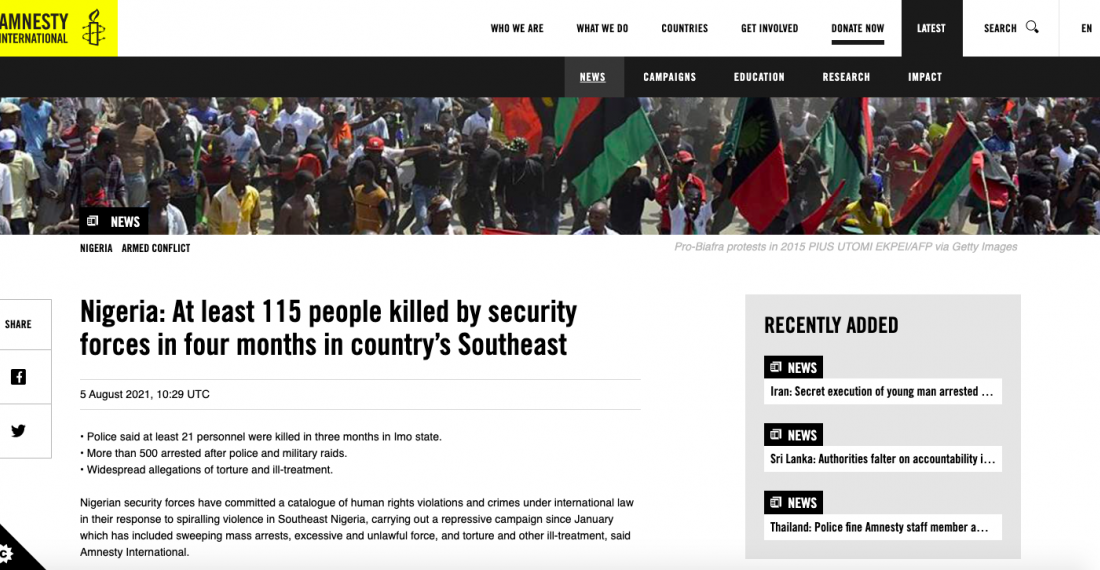The non-governmental human rights organisation, Amnesty International, on Wednesday (4 August) accused Nigerian security forces of using excessive force and killing at least 115 people between January and June this year, during a “repressive campaign” against a secessionist movement in the southeast of the country.
Violence spiralled in Nigeria's southeastern states this year, with at least 127 police or members of the security services killed, according to the police. Additionally, about 20 police stations and election commission offices have been attacked, local media have reported.
The Indigenous People of Biafra (IPOB), an outlawed movement seeking independence for ethnic Igbo of the region, and its armed wing, the Eastern Security Network (ESN), have been blamed for the violence, but IPOB has denied the charges.
According to Amnesty International, security forces – including the army, police and the intelligence agency of the Department of State Services (DSS) – suppressed these attacks by killing dozens of gunmen, as well as civilians.
“The evidence collected by Amnesty International paints a damning picture of the ruthless use of force by Nigerian security forces in Imo, Anambra and Abia states,” said Osai Ojigho, director of the NGO for Nigeria.
The Nigerian police has yet to respond to these accusations. Frank Mba, spokesperson for the national police, told Agence France-Presse (AFP) that he had not yet seen Amnesty's report and thus could not respond.
Relatives of the victims told the NGO that they were not part of the militant groups that attacked the security forces. Moreover, Amnesty also gathered information on cases of arbitrary arrests, ill-treatment and torture in this region.
“Amnesty International’s investigation indicates that most of them were randomly picked up in their homes and off the street and had nothing to do with ESN”, the NGO assessed.
“What is needed is an impartial and open inquiry to determine what happened and bring to justice all those suspected of criminal responsibility in fair trials before ordinary civilian courts and without recourse to death penalty,” Amnesty said on Twitter this Thursday.
Southeast: What is needed is an impartial and open inquiry to determine what happened and bring to justice all those suspected of criminal responsibility. https://t.co/BBsJ3Xhxj5
— Amnesty International Nigeria (@AmnestyNigeria) August 5, 2021
In the past, local and international human rights groups have regularly accused the Nigerian security forces of human rights violations, but the latter have consistently denied the accusations.






